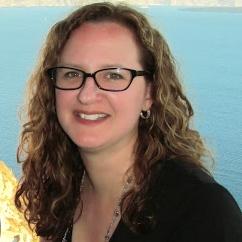By now you’ve probably heard about the importance of children learning to write computer code before they’re out of elementary school. The fear is that many librarians don’t feel comfortable creating environments for this type of technology or information because they don’t know anything about it. Librarians will be called on to support and share knowledge of computer coding and we can’t be afraid of it. By now you may be thinking, “but just where will we get that kind of training, and when will I have the time to do it?!” Enter Information Literacy! The PA Forward literacies aren’t just for who we serve, they serve us, too! So let’s learn a tiny bit about coding, then we can show our patrons that we know our stuff. Don’t worry, we’ll take baby steps.
One of the best initiatives is the Hour of Code from Code.org which provides educational resources and fun, self-paced tutorials in computer science for all ages. Hour of Code is a program that teachers, librarians and parents can follow to teach children how to write program code in quick, one hour lessons. Go to http://hourofcode.com/us, and click on the orange “Start” button. Here you will see options for your first class. I recommend taking the “Write your First Computer Program” Tutorial for Beginners. That’s the one I did, and I’ve never been so excited to help a zombie eat a sunflower. It really was fun and simple. Don’t think I didn’t print out the certificate of completion either—it’s hanging in my office.
Hour of Code is not your only option for learning to code. Working in conjunction with Code.org, Mozilla Webmaker is another resource for creating a digital poster, editing the news, or creating your own app. There are lots of other free resources online like Scratch, a free programming language that allows anyone to program their own interactive stories, games and animations. An article on Edudemic.com titled “Coding in the Classroom: 16 Top Resources” gives even more tips on how to teach and learn a little bit about coding. It’s not difficult to become a little bit literate in writing computer code. Any little bit you learn can help your patrons and add to your comfort level.
What if you’re already hooked on coding? Andromeda Yelton’s article “Learning to Code,” in the May 2015 issue of American Libraries, provides another push to improve upon what you’ve learned once you’ve gotten a little down pat. In her article Andromeda also suggests joining forums like Code4Lib which “allows technology folks in libraries, archives and museums to informally share approaches, techniques, and code across institutional and project divides.” The 2016 Code4Lib conference is in Philadelphia!
Does your library have an Hour of Code program in place, or are you doing something else brilliant to promote STEM education? Don’t forget to add your successful programs to the PA Forward Best Practices Database by completing the PA Forward Best Practices Short Form.


